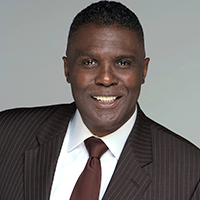By Glenn Ellis
(Trice Edney Wire) – Kanye West is at it again.
The erratic and confusing (although sometimes amusing) antics of Kanye continue to dominate the entertainment industry. However, recent developments have started to cast a cloud over how amused or concerned people are about Kanye West and his mental health. Truth be told, people have been speculating about his mental and emotional wellbeing for some time.
Let me be clear, we do not know any of the specifics of Kanye West’s medical information. However, his recent, well-publicized activities should cause us all to pause and look at mental illness in our society; and, particularly, in the African-American community.
African-Americans are no different when it comes to prevalence of mental health conditions when compared to the rest of the population. However, your concerns or experiences and how you understand and cope with these conditions may be different.
With African-Americans leading the country with troubling statistics in areas like unemployment, child abuse and neglect, and domestic violence, all of which can exacerbate stress, it is perhaps not surprising that the community leads the country in mental-health struggles.
There’s no getting around it, institutional racism is a leading cause of mental illness in African-Americans.
Racism can psychologically affect Blacks by allowing society to deny their value as individuals, and by compelling them to internalize the racist conceptions of them held by their oppressors. Racist stressors may also lead to increased physiological reactivity which, when sustained for a period of time, can lead to cardiovascular disorders and diseases.
For African-American adults, perceived racism may cause mental health symptoms similar to trauma and could lead to some physical health disparities between Blacks and other populations in the United States, according to a new study published by the American Psychological Association.
Most Americans, particularly African-Americans, underestimate the impact of mental disorders. Many believe symptoms of mental illnesses, such as depression, are “just the blues.”
Often, African-Americans turn to family, church and community to cope. Forgiveness and grace are, indeed, hallmarks of the Black Church. The level of religious commitment among African-Americans is high. In one study, approximately 85 percent of African Americans respondents described themselves as “fairly religious” or “religious” and prayer was among the most common way of coping with stress.
But the real statistics are loud and clear. African-Americans are 20 percent more likely to report having serious psychological distress than non-Hispanic Whites, per the U.S. Department of Health and Human Services Office of Minority Services. Yet, young adult African Americans, especially those with higher levels of education, are less likely to seek mental health services than their White counterparts.
Can racism cause post-traumatic stress? That’s one big question psychologists are trying to answer, particularly in the aftermath of the plethora of police shootings of unarmed Black men, where race was a factor.
The relationship between perceived racism and self-reported depression and anxiety is quite clear, providing a reminder that experiences of racism may play an important role in the health disparities phenomenon. For example, African-Americans have higher rates of hypertension, a serious condition that has been associated with stress and depression.
Historically, African-Americans have normalized our own suffering. During slavery, mental illness often resulted in a more inhumane lifestyle including frequent beatings and abuse, which forced many slaves to hide their issues. Over time, strength became equated with survival and weakness (including mental illness) meant you might not survive. That stigma still exists today.
Many African-Americans, especially those who’ve ascended the socio-economic and professional ladder in the face of institutionalized racism, struggle with feeling compelled to be strong. Some are so socially isolated that they feel they can’t trust anyone or share anything and must go it alone.
Mental illness takes many forms. Therefore, the issues those battling mental health face often go unseen. For some Black celebrities with mental health issues, life is often filled with tragedy and triumphs while engaging in a private and public battle. We go to their concerts and appearances; buy their music; stay glued to the television for the season’s hottest series. We watch African-American celebrities and public figures on the world stages entertain and inspire us every day, yet we pay no attention to the signs and symptoms that they are suffering in silence. Only once they spiral out of control, often into total self-destruction, do we began to wonder “if something is wrong”.
Serena Williams, Oprah Winfrey, Dwayne “The Rock” Johnson, and US Congressman Jesse Jackson, Jr. suffer from depression; Michael Jackson was said to have a form of Obsessive Compulsive Disorder (OCD), which caused a negative pre-occupation with body image; Nina Simone suffered from bipolar disorder, as do Chris Brown, DMX, and Mike Tyson; Don Cornelius committed suicide; even Dr. Martin Luther King, Jr. suffered from depression and was suicidal.
Is Kanye mentally ill? Perhaps. Would he benefit from psychological help? Absolutely. Is he really that different from the rest of us? Maybe not as much as we’d like to think.
Remember, I’m not a doctor. I just sound like one.
Take good care of yourself and live the best life possible!
NOTE: The information included in this column is for educational purposes only. It is not intended nor implied to be a substitute for professional medical advice. The reader should always consult his or her healthcare provider to determine the appropriateness of the information for their own situation or if they have any questions regarding a medical condition or treatment plan. Glenn Ellis is a Health Advocacy Communications Specialist. He is the author of Which Doctor?, and Information is the Best Medicine. A health columnist and radio commentator who lectures, nationally and internationally on health related topics, Ellis is an active media contributor on Health Equity and Medical Ethics.
















